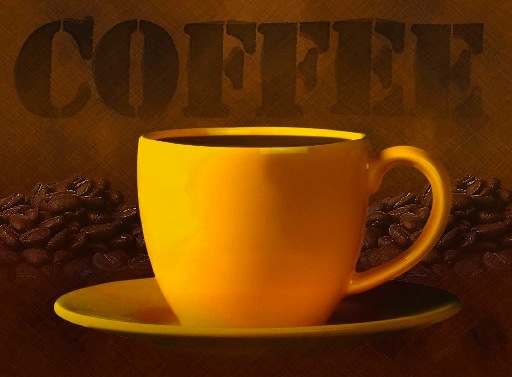A couple of weeks ago, as my 3-year-old granddaughter was getting ready for bed, she asked my oldest son if he'd make her a snack.
"What do you want?" he asked.
"Ummm ... You make me mocha Frappuccino?" was Lily's response.
What?!
How pervasive is the coffee culture when a 3-year-old has already learned the lingo? I didn't know what that was until a couple of years ago. Seriously. But I'm not a coffee drinker like my sons and their spouses, whose mocha Frappuccinos Lily evidently has sampled.
According to information from local dietitian Pamela Kelle, maybe I shouldn't be that surprised, though. Coffee consumers are getting younger and younger.
In fact, the National Coffee Association says that teenagers are the fastest-growing population of coffee drinkers. In 2002, an association survey showed 24 percent of 18- to 24-year-olds drank coffee. By 2010, that number had climbed to 37 percent.
Kelle, a registered dietitian and certified eating disorder nutritionist, credits three reasons for this trend.
- The surge in popularity of coffeehouses among teens. Whereas their grandparents hung out at soda shops and their parents at the mall, today's teens socialize at Starbucks, Panera and downtown coffeehouses.
"Usually these visits occur after school and can introduce more caffeine than is recommended and may interfere with sleep," Kelle said.
- Many coffee drinks are high in sugar, calories and caffeine. Kelle says that combo can add unwanted calories to a group that tends to be inactive.
- Kelle said many teens and young adults mistakenly believe coffee will "sober them up," so they drink coffee for that purpose before driving.
Yes, it can help with alertness, says a National Institutes of Health report, but coffee shouldn't be used as a stimulant to stay awake when driving.
I don't mean to sound like an alarmist. I'm sure any parent would prefer their teen indulge in coffee in the safety of a coffeehouse when compared to all the other temptations available to that age group. I'm just saying, too many coffees can run up caffeine and calorie counts.
So how much coffee is too much?
Kelle says moderate consumption is considered to be about three cups (300 milligrams). But that is three 8-ounce cups, not the tall (12 ounce) or grande (16 ounce) sizes in which most specialty coffees come.
One Starbucks coffee can contain about 320 milligrams of caffeine. You'd have to drink nine cans of Coke to get the same amount of caffeine.
By comparison, brewed tea has 20 to 90 milligrams of caffeine per cup, she said. But before those of us who prefer tea start to feel too smug, just know that any excessive intake of caffeine through any drink can lead to side effects such as shakiness, weakness, irritability, rapid heart rate and poor sleep.
Kelle also pointed out that folks who love specialty coffees need to pay attention to the calorie intake as well. The calories in one specialty drink can be more than what many adults consume in a full lunch.
"A full grande mocha or cappuccino can hold a whopping 500 calories," she said. "Because consumers often do not consider fluid calories, one could easily pack on an extra 10 pounds a year just by consuming an extra 150 calories a day, five days a week. Every pump of mocha or chocolate adds about 20 more calories."
So here are some alternative choices to consider before you place your next order. All are based on 12-ounce coffee drinks at Starbucks.
• Instead of: Caramel Brulee Frappuccino (310 calories).
Try: Caramel Brulee Frappuccino Light (150 calories).
• Instead of: Mocha Frappuccino (280 calories).
Try: Mocha Frappuccino Light (110 calories).
• Instead of: Peppermint Hot Chocolate (350 calories).
Try: Hot chocolate with 2 percent milk (290 calories).
Up next: Nutritionist Jamie McDermott advises readers on how much coffee intake constitutes a habit and how to keep coffee calories in check.
Contact Susan Pierce at spierce@timesfreepress.com or 423-757-6284.

